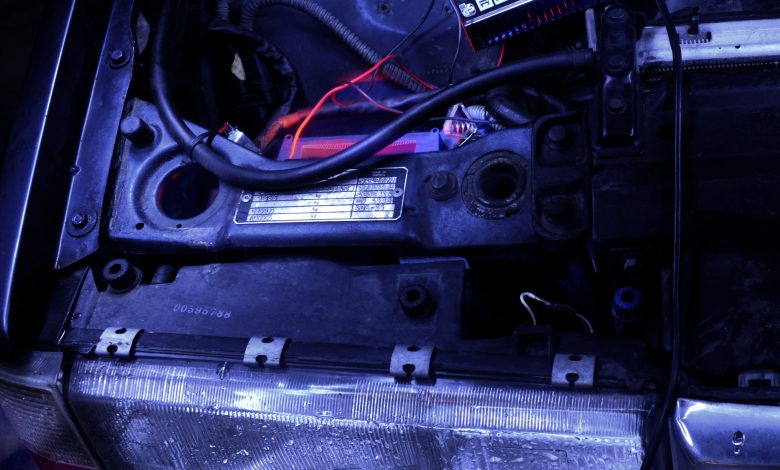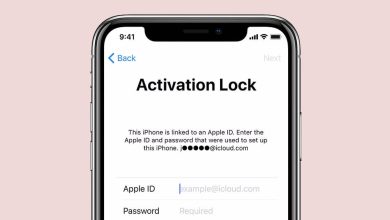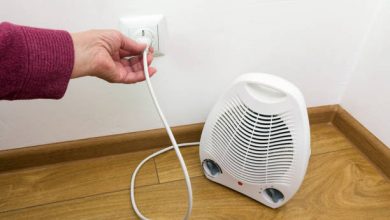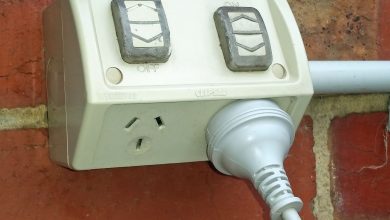
Automobile batteries have a limited life span before they die a natural death. As a car owner, it is essential to be aware of the signs which let you know your battery needs replacement. When purchasing a new battery at an auto parts store, you will have to choose from a conventional or maintenance-free type of battery. In some cases, your mechanic may install a battery you purchased online or at an auto parts store. This saves time and money for the consumer.
Car batteries age
Car batteries last around four years on average if they are serviced properly. However, it is best to replace them every five years because there seems to be no benefit in lengthening their life span.
After four years, car batteries gradually lose their ability to hold a charge until they finally die. When this happens, there are generally visual indicators that let the driver know immediately. These warning signs need to be heeded as time goes by because the battery will soon cut out while you are driving. This is dangerous because it forces the other systems in your engine to work harder to compensate for your dead battery, leading to damage of other components or malfunctions.
What are the signs of dying car batteries?
You want to begin by determining whether or not you need a new alternator that sounds worse because these two components work in tandem rather than independently of one another. That being said, some simple ways can help with this diagnosis by allowing you to narrow down what needs attention first before the other. Generally speaking, when your car’s electrical system isn’t working right, it points towards needing a new alternator or battery more often than not.
1) Slow cranking
A slow crank might indicate corrosion has built up on your battery cables or terminals, allowing fewer amps into the starter motor when starting the car.
2) Dim lights
If your vehicle’s electrical systems are acting up, it may be the battery doing its job by supplying limited current to protect other components.
3) Engine will not rank
If your engine fails to turn over, the most likely cause is a bad starter or a low charge in the battery.
4) Brown or white smoke from exhaust
This could indicate an overheated electrical component under the hood that has failed due to the low voltage supplied by your weak or dying battery.
5) Pulsating car battery
This occurs when you try to start your vehicle, but it only triggers for a few seconds before cutting off again. A weak battery can’t hold enough charge to keep the starter system engaged long enough, so it cycles on and off until it finally gives out.
6) Difficulty starting
This sign is pretty self-explanatory. If your battery cannot supply enough current to crank the engine, you are going to have problems starting it.
Read More: Step-By-Step Guide About How To Wire A Car Stereo Without A Harness?
Reasons for quick dying of car batteries
A car battery is the lifeblood of a vehicle’s electrical system. When it has problems, everything from headlights to air conditioning can turn sluggish and stop working for no apparent reason. Most people know that the alternator powers the car’s electrical needs when the engine is running, but most people do not realize that while parked or if the engine is running, the battery also feeds power to these essential systems. Also, when a vehicle sits for an extended period without being driven, the battery’s charge slowly dies until it can no longer deliver enough current to start the car.
The following are some reasons why your car battery may not be holding its charge anymore:
- A worn-out battery will not be able to hold a charge. Worn out batteries are often the result of overcharging. There are several warning signs that your car’s battery may be failing, which include clicking or hissing sounds when turning the key in the ignition, headlights dimming while you’re driving, and failure to start after extended periods of inactivity.
- If you often experience dim headlights, even when the battery has a full charge, your car’s electrical system may not be able to handle the current draw from the lights and alternator. If this is the case, you’ll need to install a high output alternator or add additional capacity with an auxiliary battery.
- Leaving a car’s headlights, interior lights, or other accessories on while the vehicle is switched off will eventually drain the battery if it is not maintained correctly. When an auxiliary or high output alternator isn’t used, it should be disconnected from the storm. In addition, when jump-starting a car, it’s always best to disconnect any additional accessories from the battery.
- Car batteries are made to dish out a lot of power, but they can only do this for a short period. Unfortunately, suppose you drain your battery too much by using electronic accessories or even something as simple as opening a door with the alarm system. In that case, it will leave your car with a dead battery. If you have left your headlights on all night and the battery is dead, a push start may be necessary to get going again.
- If a car’s electrical system has a bad ground or power wire, it can’t distribute power properly, which will cause the battery to drain quickly. In addition, if there is loose wiring under the hood or by the storm, it can cause a draw on the battery. If the wiring is not repaired, over time, this problem will cause a drained battery.
- If your car’s alternator suddenly starts to fail and cannot charge the battery like it used to, it may be time for a replacement. Alternators can often go wrong without warning and leave you stranded without any power in your vehicle.
- If you experience a dead battery and your car will not start, chances are the battery terminals may be corroded. If they are, the corrosion needs to be removed as soon as possible because it can cause permanent damage to the electrical system. If the terminals cannot be cleaned or are already severely corrupted, it may be necessary to replace the battery.
- While driving, if your engine is idling rough or seems sluggish, it may be due to a lack of voltage. A faulty alternator will not recharge the battery while under load, resulting in an engine that lacks power when you need it most. If this issue is left unresolved, you could damage your vehicle’s electrical system, so have your alternator checked as soon as possible.
- A defective battery can also cause a car that be hard to start when it’s cold out. Once the engine has warmed up, this problem will go away, but in extreme cases, it may indicate an impending failure of the battery. Unfortunately, there isn’t a surefire way to tell if a car’s battery is going wrong, but it’s always a good idea to have it tested as soon as possible.
- When a vehicle experiences problems on cold days, there could be several issues at play, from the weather itself or external factors such as leaving auxiliary lights or other electronic accessories on overnight. In addition, a dirty or corroded battery post will reduce the amount of power distributed through the terminals and to your car’s electrical components.
FAQs
- What can I do to increase the battery life of my car battery?
Newer vehicles are increasingly being equipped with “maintenance-free” batteries. There’s no need to check the fluid level or fill it with water during normal usage.
Keep the top of the battery clean and dry by wiping it down with a cloth. This will remove any dust or debris that might prevent the battery terminals from making good contact with the car’s electrical system, resulting in hard starting or charging problems.
- What is the average life of a car battery?
Car batteries can last from 2 to 6 years, depending on usage and conditions.
- What factors affect the performance of a car battery? How can I make my battery last longer?
Some factors influence the performance and lifespan of a car’s battery: Age Temperature Weather Frequency. Batteries that are regularly discharged, infrequently charged, or stored in a discharged state will have reduced capacity. Also, exposure to extreme heat or cold will affect the life of the battery. A car’s alternator is typically not powerful enough to fully recharge a dead battery, so batteries must be restored as soon as practicable after being discharged.
If you are not driving your car regularly, it is recommended that you recharge the battery at least once every three months. It is also possible to purchase devices that will maintain the charge in your battery when your car is not in use.
- How can I test my car’s battery?
It is advisable to test your car’s battery at least once every three months. It is also possible to purchase a device that will test the charge in your car’s battery when it is not in use.





